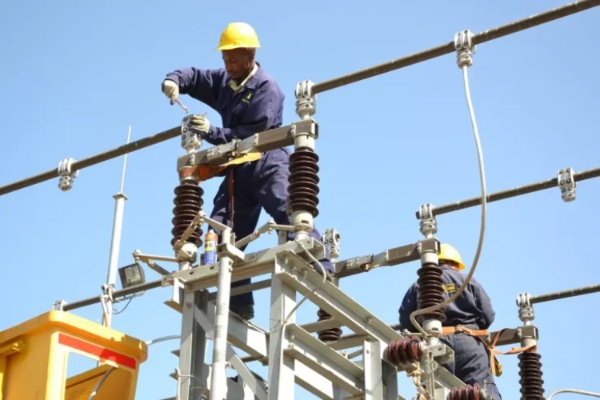Why Kenya Power is teetering on brink of collapse

As I write this, my neighbourhood is enduring a three-hour power outage. During this period, the whole commercial neighbourhood has remained dark, except for the few who have backup systems.
This disruption has prompted me to reflect on our dependence on electricity for our daily routines.
Power blackouts in Kenya carry significant economic implications, although the exact cost remains unquantified.
Extensive research has revealed the immense impact these blackouts have on the economy.
Power outages in Sub-Saharan Africa inflict substantial financial losses upon businesses, leading to an alarming 31 per cent decline in sales.
The weight of these blackouts on enterprises is heavy, with Kenya’s blackout rates surpassing the global average. This issue poses a grave economic concern for the nation.
In November 2023, a blackout occurred nationwide, resulting in significant losses for businesses and shedding light on the inherent vulnerability of our power system. This unfortunate event underscored the pressing need for a more robust and reliable infrastructure to ensure an uninterrupted power supply.
Kenya Power is facing a dire situation, as revealed by the chief auditor’s warning of an imminent collapse.
The corporation has suffered losses for seven consecutive years, totaling a staggering Sh4.43 billion before taxes. The report by the auditor general reveals alarming financial statistics, raising concerns about the company’s long-term sustainability. These worries persist despite the country’s frequent power outages.
You may wonder how Kenya Power, a company that sells an essential product and enjoys a monopoly, is on the brink of collapse. It may seem perplexing, but even monopolies like Kenya Power can succumb to complacency. As a result, consumer trust and satisfaction can suffer greatly.
The significance of competition in stimulating innovation is crucial. In its absence, the impetus to innovate wanes. Monopolistic entities face a heightened risk of failure when they neglect to align themselves with growing market demands, thereby rendering themselves susceptible to the disruptive forces of technological progress. Kenya power has not experienced any notable competitor in the market to keep it on its toes.
The power sector is grappling with inefficiencies that have affected its overall performance. One concern is the outdated infrastructure, which fails to meet the increasing demands of the population. This outdated system cannot handle the growing power needs, resulting in frequent power outages and disruptions.
Kenya Power has been criticized for charging inflated prices and subpar product quality, causing consumers to seek alternative power sources. This has negatively impacted sales and the brand’s reputation.
The loss of consumer trust is particularly damaging for a company like Kenya Power, as it relies heavily on their customers’ confidence and satisfaction. Compromise can lead to alternative solutions or illegal connections, further undermining the monopoly’s revenue and stability.
To mitigate consumer dissatisfaction caused by monopolies, it is crucial for regulatory bodies to enforce antitrust laws and promote fair competition.
By fostering an environment that encourages new market entrants, regulators can empower consumers with a wider range of choices, ensuring that monopolistic practices are curtailed. It is in this light that we welcome the suggestion by Energy and Petroleum Regulatory Authority (EPPRA) and Parliament to end Kenya power monopoly.
EPRA’s draft report indicates that contracts will be terminated 36 months after establishing necessary infrastructure, marking a significant shift in the sector. This development signifies increased competition and improved services for consumers, as the power sector is set to witness the emergence of competition.
— The writer is an Innovations Evangelist and a PhD Candidate. —machariamuhoho@gmail.com











